Share your results
Please enter your email
Results shared!
We've sent a link to your email so you can access your results at any time.
While you can’t stop the passage of time, there are lifestyle choices that can help you control how well you age.

About the author
With more than 40 years of expertise in helping people age well, Hilary O’Connell is LiveUp’s Principal Advisor for Healthy Ageing.
Originally from the UK, Hilary’s career has encompassed work as a clinician, manager, and project leader across the disability and aged care sectors.
The reality is that you start to age from the moment you’re born, and you’re older today than you were yesterday. Getting older is inevitable. But when you hear the phrase, 'You can’t control how you age', it's really saying you can’t control how well you age.
This is a myth!
About the author
With more than 40 years of expertise in helping people age well, Hilary O’Connell is LiveUp’s Principal Advisor for Healthy Ageing.
Originally from the UK, Hilary’s career has encompassed work as a clinician, manager, and project leader across the disability and aged care sectors.
The reality is that you start to age from the moment you’re born, and you’re older today than you were yesterday. Getting older is inevitable. But when you hear the phrase, 'You can’t control how you age', it's really saying you can’t control how well you age.
This is a myth!
Read less...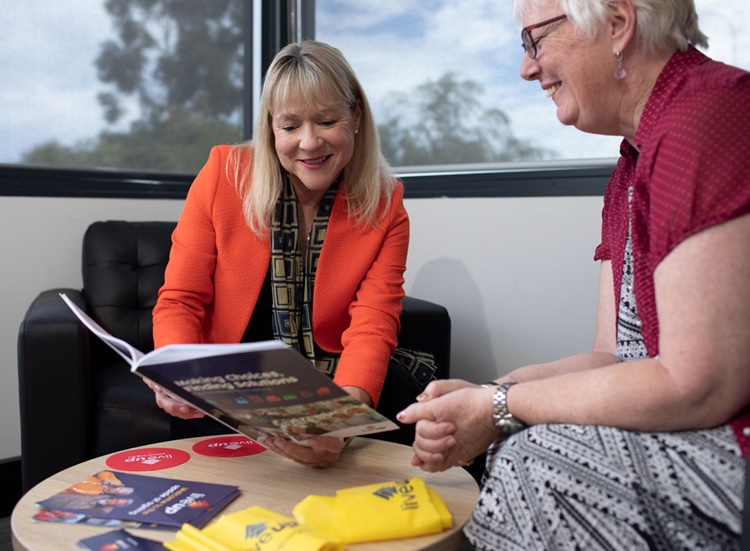
Ageing is associated with physical and hormonal changes in your body which increase your risk of developing chronic diseases and needing care. Older people are more likely to experience changes which increase your need for support and services as you age (WHO 2017). However, these difficulties are not all an inevitable part of getting older.
It’s true that some people age better than others. Some people stay physically active and able to live independently, even though they are the same age and live in the same community as others who need high levels of support. We also know that some people around the world are more likely to live healthily into old age (NIH 2016).
Ageing is associated with physical and hormonal changes in your body which increase your risk of developing chronic diseases and needing care. Older people are more likely to experience changes which increase your need for support and services as you age (WHO 2017). However, these difficulties are not all an inevitable part of getting older.
It’s true that some people age better than others. Some people stay physically active and able to live independently, even though they are the same age and live in the same community as others who need high levels of support. We also know that some people around the world are more likely to live healthily into old age (NIH 2016).
Read less...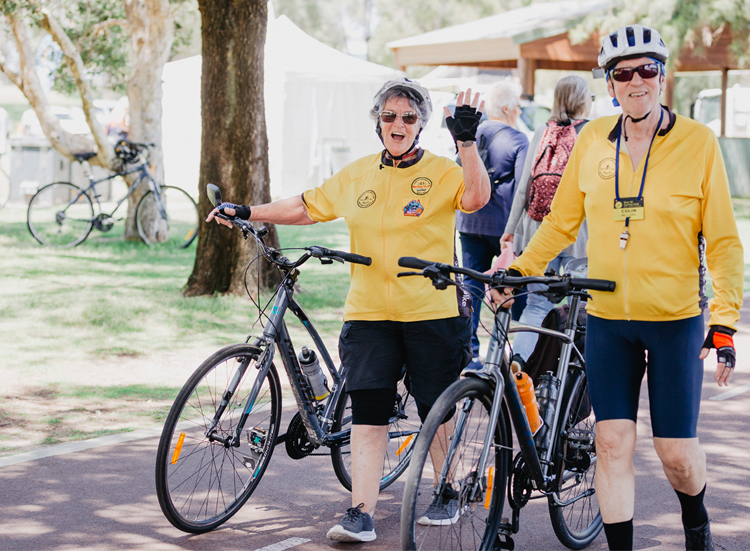
While your health is influenced by your genes, the environment you live in, and the medical care you receive, research shows that only 25% of how long you live is dictated by your genes (AJLM 2016). The rest is dictated by your lifestyle. Over 50% of your personal health status can be attributed to unhealthy behaviours such as physical inactivity, smoking, and poor diet (AJLM 2020).
Science has also shown that there is an increasing incidence of chronic diseases worldwide. This includes diseases such as diabetes, obesity, heart disease, and cancer, many of which have been linked to the modern lifestyle.
So, what can you do to improve your own health and reduce the risk of chronic illness and any reliance on care and services as you age?
While your health is influenced by your genes, the environment you live in, and the medical care you receive, research shows that only 25% of how long you live is dictated by your genes (AJLM 2016). The rest is dictated by your lifestyle. Over 50% of your personal health status can be attributed to unhealthy behaviours such as physical inactivity, smoking, and poor diet (AJLM 2020).
Science has also shown that there is an increasing incidence of chronic diseases worldwide. This includes diseases such as diabetes, obesity, heart disease, and cancer, many of which have been linked to the modern lifestyle.
So, what can you do to improve your own health and reduce the risk of chronic illness and any reliance on care and services as you age?
Read less...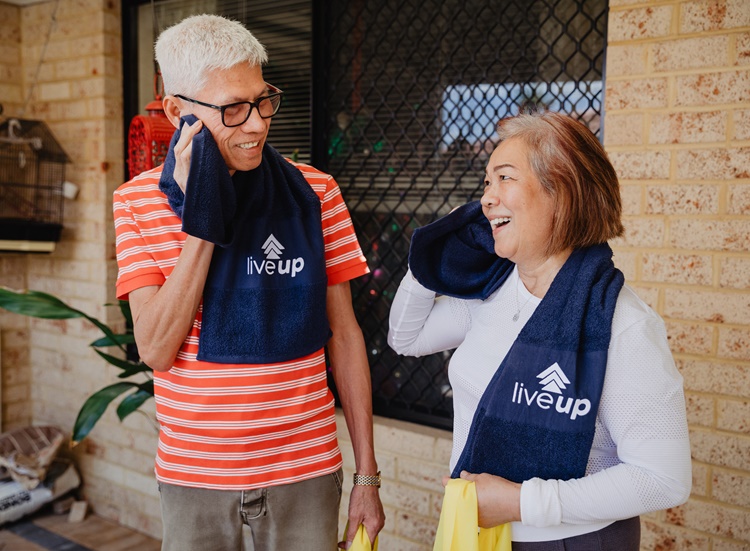
Scientific research shows that the single most important choice you can make to improve your health is to increase your level of activity and to be active every day. Here are some helpful suggestions to incorporate movement into your lifestyle. Build a little bit of exercise into everyday activities.
Scientific research shows that the single most important choice you can make to improve your health is to increase your level of activity and to be active every day. Here are some helpful suggestions to incorporate movement into your lifestyle. Build a little bit of exercise into everyday activities.
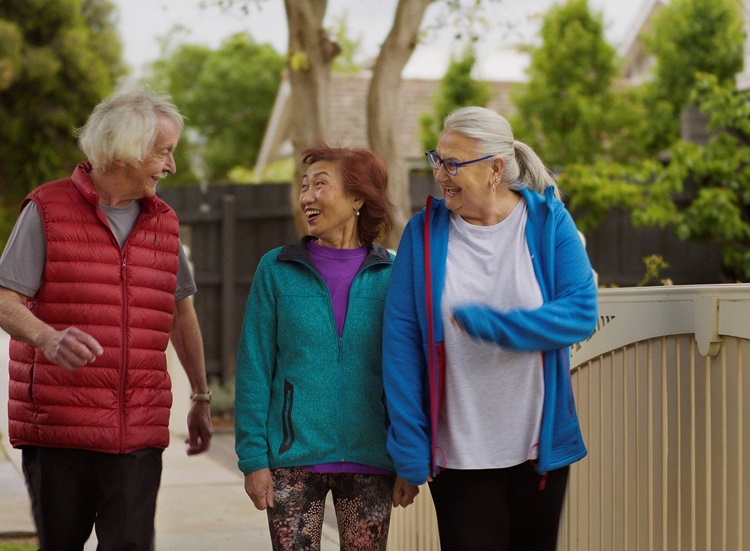
Take a daily walk. Walk around the block or up and down your street. Challenge yourself to walk up and down slopes. Use walking poles to help with your balance and stability. Challenge yourself to walk for a bit longer or a bit further each week and gradually build up your level of activity.
Take a daily walk. Walk around the block or up and down your street. Challenge yourself to walk up and down slopes. Use walking poles to help with your balance and stability. Challenge yourself to walk for a bit longer or a bit further each week and gradually build up your level of activity.
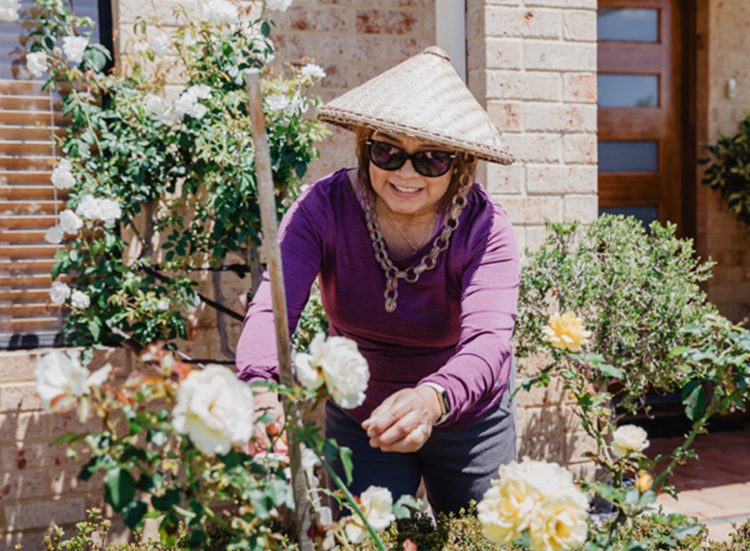
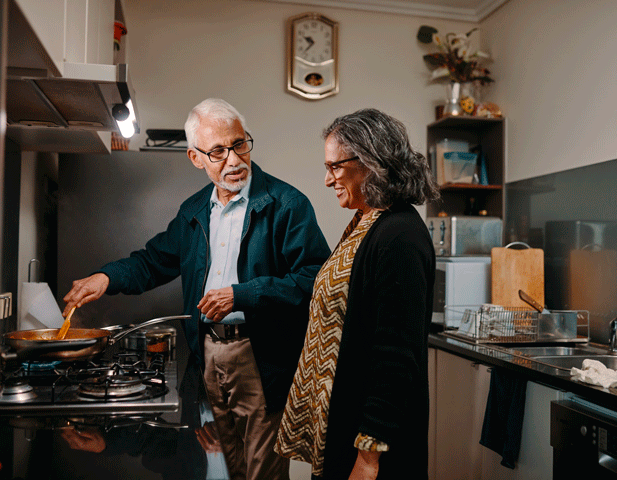
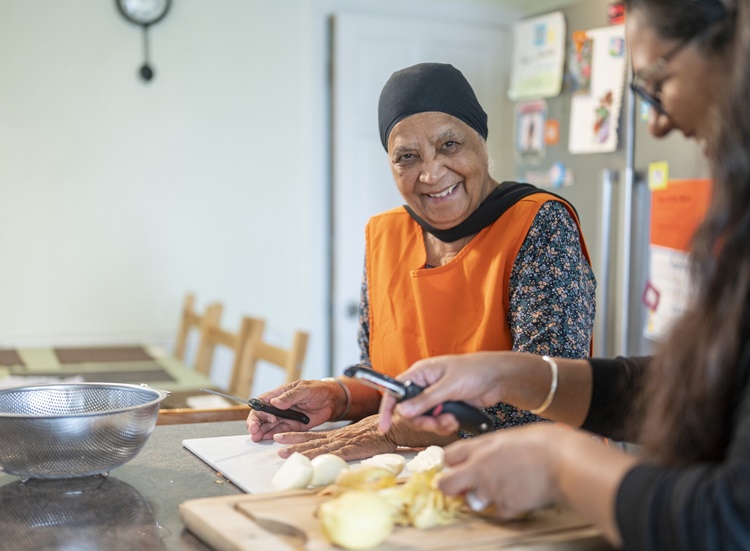
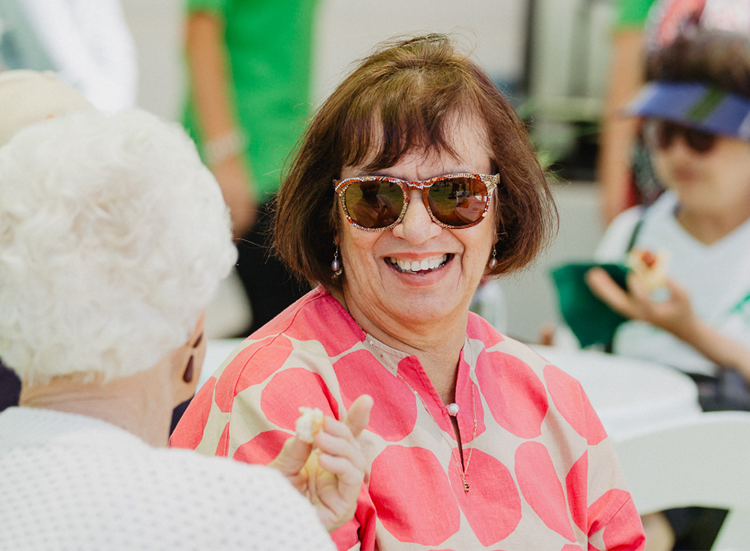
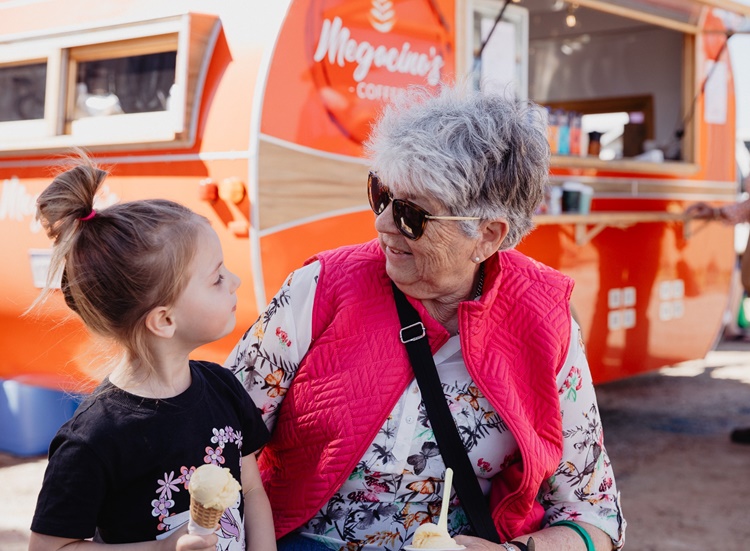
By choosing to work on just a few of these simple suggestions you can control how well you age. You can improve your health even if you are already living with chronic disease or disability. What's more, it’s never too late to get started!
For ideas and inspiration, explore these articles about older Australians actively living life on their own terms.
If you would like to find local exercise classes, social activities, and helpful tips, take the LiveUp quiz or get in touch with one of our helpful
team on 1800 951 971.
By choosing to work on just a few of these simple suggestions you can control how well you age. You can improve your health even if you are already living with chronic disease or disability. What's more, it’s never too late to get started!
For ideas and inspiration, explore these articles about older Australians actively living life on their own terms.
If you would like to find local exercise classes, social activities, and helpful tips, take the LiveUp quiz or get in touch with one of our helpful
team on 1800 951 971.
Buettner, D., Skemp, S., et al. (2016, July 7). Blue Zones: Lessons From the World’s Longest Lived. American Journal of Lifestyle Medicine, 10(5). https://doi.org/10.1177/1559827616637066
Frates, B., Buettner, D., Skemp, S. (2016, September-October). Blue Zones - Lessons From the World’s Longest Lived. National Library of Medicine | National Center for Biotechnology Information, v.10(5). PMC6125071. https://www.ncbi.nlm.nih.gov/pmc/articles/PMC6125071/
Thompson, W. R., Sallis, R., Trilk, J. L., et al. (2020, April 22). Exercise is Medicine. American Journal of Lifestyle Medicine, 14(5). https://doi.org/10.1177/1559827620912192
World Health Organization. (2017). Integrated care for older people: Guidelines on community-level interventions to manage declines in intrinsic capacity. Retrieved from https://www.who.int/publications/i/item/9789241550109
Take our easy OpenUp quiz to get personalised advice and see suggested products, services and support in your local area or online.
Let's go!